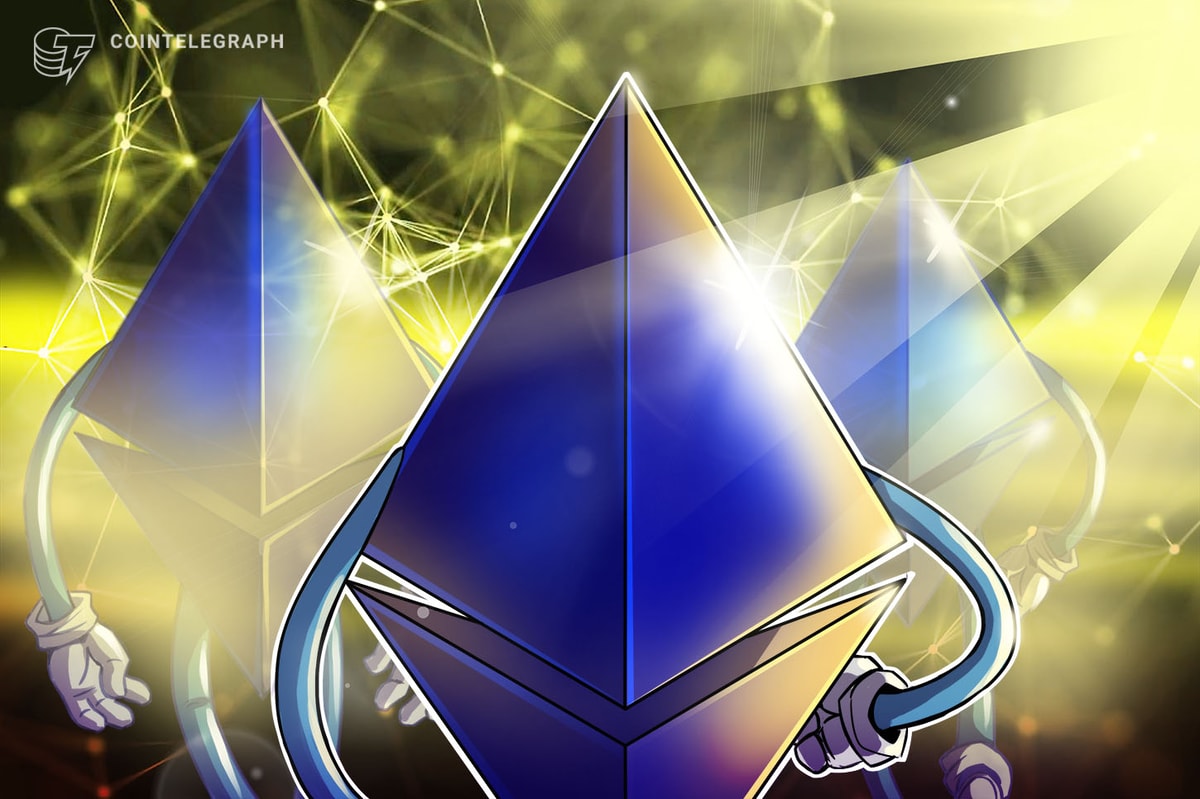Ethereum upgrade aimed at lowering L2 TX costs eyes mainnet deployment

Ethereum’s Dencun upgrade, introducing “proto-danksharding,” has successfully completed its final stage of testing via the Holesky testnet and is now awaiting a date for its mainnet deployment.
Data shows the Dencun upgrade was forked on Holesky at about 11:35 am UTC on Feb. 7, with Nethermind sharing the news on X shortly after. The upgrade is widely expected to drive down transaction costs on Ethereum layer-2s.
Aaaand we've finalized!
— Nethermind (@NethermindEth) February 7, 2024
Dencun will notably introduce proto-danksharding via Ethereum Improvement Proposal-4844.
The key feature of EIP-4844 are “blobs,” which will allow for the temporary storage and access of large amounts of off-chain data by Ethereum nodes.
Philippe Schommers, head of infrastructure at Gnosis previously explained to Cointelegraph that the implementation of Dencun on the Ethereum mainnet could lower rollup costs by up to 10 times.
A date for the mainnet deployment of Dencun is expected to be decided on Feb. 8 in an AllCoreDevs call, while Ethereum bull Anthony Sassano said on Feb. 7 that “all signs point to early-mid March.”
Related: ETH could reach $27K this bull cycle, expert predicts
Dencun, which combines the Cancun and Deneb upgrades is set to be the most significant upgrade of Ethereum since the Shapella upgrade last April, which allowed the unstaking of Ether (ETH) from the Beacon Chain for the first time since the proof-of-stake chain launched on Dec. 1, 2020.
Cancun is focused on network scalability at the execution layer. While EIP-4844 is the centerpiece, EIP-1153, EIP-4788, and EIP-6780 are also part of the upgrade.
Deneb, meanwhile, is focused on improving Ethereum’s consensus layer.
In my continuing quest to document the history of Ethereum improvements in song, I present:
“Dencun Finalized On Holesky”
collect:songaday [dot] world [slash] 5516 pic.twitter.com/lL04wcfalq
— 16 years of song a day (@songadaymann) February 7, 2024
Prior to Holesky, Dencun was deployed on the Goerli and Sepolia testnets on Jan. 17 and Jan. 30, respectively.
The deployment of Dencun to Goerli did, however, suffer a four-hour delay caused by a bug that prevented the testnet from finalizing the upgrade.
“The network could not sync with nodes because of a bug in Prysm, Ethereum’s proof-of-stake client,” said Nebojsa Urosevic, a founder of Ethereum development platform Tenderly, told Cointelegraph at the time.
“It’s one of the reasons why there are multiple clients and why testnets exist,” Urosevic added.
Magazine: ‘Account abstraction’ supercharges Ethereum wallets: Dummies guide



